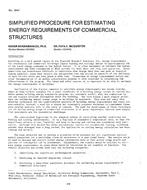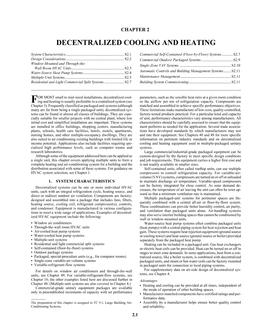Click here to purchase
Recreational sports facilities are known to have a high level of energy consumption since the indoor-air conditions are crucial to athletes’ performance. The thermal and moisture conditions are difficult to control without adequate models. A CFD model is used to simulate the thermal and moisture conditions of a gymnasium. This is coupled to a dynamic envelope model. Then, a reduced order model is developed to serve as the basis for an optimal energy control solution. Weather uncertainties are then evaluated within a dynamic control procedure that incorporates weather prediction errors at each time step.
Citation: 2019 Annual Conference, Kansas City, MO, Extended Abstracts
Product Details
- Published:
- 2019
- Number of Pages:
- 3
- Units of Measure:
- Dual
- File Size:
- 1 file , 1.3 MB
- Product Code(s):
- D-KC-19-A004


